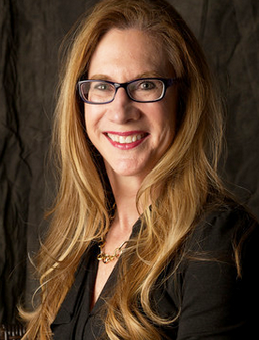"I Use My Money To..." How Gender Affects Attitudes About Money and Charitable GIving

Guest Post by Debra Mesch Ph.D., director of the Women's Philanthropy Institute and holder of the Eileen Lamb O'Gara Chair in Women's Philanthropy at the Indiana University Lily Family School of Philanthropy
Money is the currency of philanthropy yet few of us have open conversations with family or friends about our attitudes towards it. Princeton sociologist Robert Wuthnow wrote that money is the deepest taboo in our society. Few of us may recognize that men and women have different attitudes about money; these attitudes shape our philanthropic actions.
When I ask audiences what money means to them, men and women generally respond according to gender lines supported by empirical research. A variety of studies finds that for men money is power, achievement, and prestige. For women, money is often personal security, a means of living a satisfying life, and a way to achieve goals. For women, money is often a means to a greater end.
That greater end is often philanthropy. A 2013 Insights on Women and Wealth issued by U.S. Trust found that “women are nearly twice as likely as men to say that giving to charity is the most satisfying aspect of having wealth.” An earlier report from Wilmington Trust states that “women do not see their wealth as personal possession, but as a way to initiate positive change. It grants the freedom for women to support the cause they deem most worthwhile and this gives a sense of making a real and significant difference.”
One way these differences in attitudes towards money play out in philanthropy is how men and women choose to allocate their charitable dollars. For example, we see many more buildings named for men than for women – on college campuses, within hospital complexes, and across the community. Naming a building is tangible evidence of power, prestige, and achievement. Women tend to build people and programs. They may attach their name to the program but it is far less visible than a building’s external façade.
Some people may see this absence of women’s names on buildings as evidence that women aren’t philanthropic. The issue is far more complex. Women are incredibly philanthropic; in fact, our research at the Women’s Philanthropy Institute finds that women are more likely than men to give and give more to charity. In our donor-centered world, it’s important to acknowledge that all donors do not look alike. Some donors are men and some donors are women. They may allocate their resources in different ways. One is not better than the other – just different.
Perhaps hometown author Barbara Stanny (daughter of the R in H & R Block) summarized best how women’s attitudes about money affect their philanthropy when she wrote in Prince Charming Isn’t Coming, “When a woman uses her money to express her values and beliefs, when she makes financial decisions based on who she is, not what she should do, and when she acts firmly and confidently on these issues, then she becomes a very powerful woman.”
The more we understand factors that affect philanthropic behavior, such as attitudes about money, the better able we will be to develop strategies to engage donors and prospective donors in the ways they prefer.
Considering that women are 50% of the country’s population, it makes sense to study the role of gender in philanthropy. What we’ve learned to date is that charitable giving is a complex subject. Gendered differences surface in all aspects of philanthropy from motivations for giving to household decision making and to philanthropic behavior.
Test this out with family members or donor couples you know. Ask open-ended questions such as “What does money mean to you” and “if you received a sudden gift of $1 million what would you do with it?” Take the journey of discovery to learn how gender affects attitudes about money and charitable giving.
Don't miss Debra Mesch in Kansas City! Join us on March 22 for a powerful discussion on women as an undervalued asset in philanthropy. Learn more and register here.
Thank you to 501(c) Success National Speaker Series Sponsor Jeffrey Byrne + Associates.

